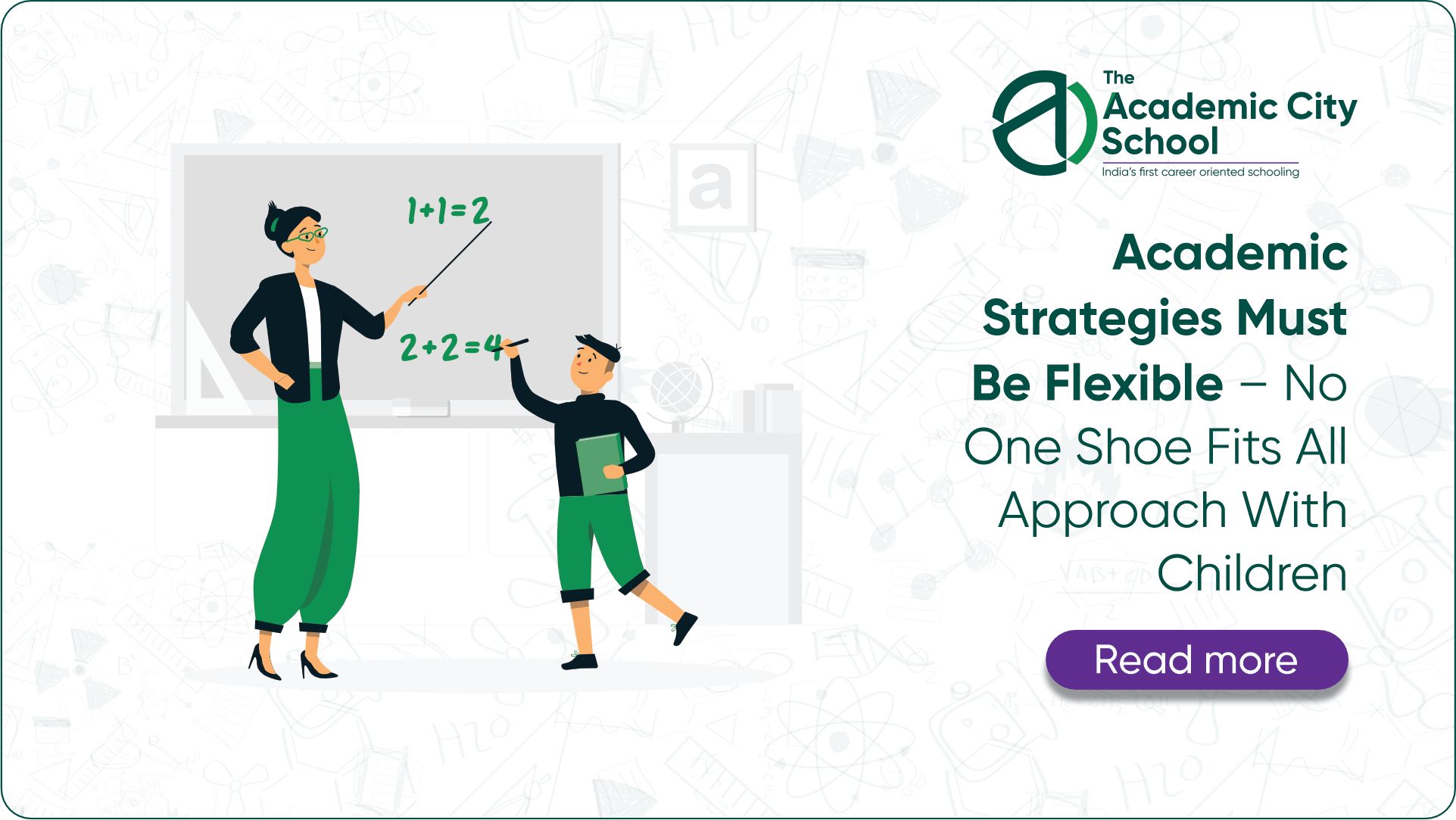Academic Strategies Must Be Flexible – No One Shoe Fits All Approach With Children

Why Flexibility Matters in Education
Every child learns differently. Some grasp concepts in minutes, others need more time to explore and understand. Yet, too often, academic systems treat them the same way. Dr. V.S. Ravindran, one of India’s leading child psychologists, points out that learning thrives when it respects the learner’s pace. For parents, this means seeking environments where teaching adapts to the child, not the other way around.
Recognising Different Learning Styles
Some children are visual learners, others are auditory or kinesthetic. Flexible academic strategies acknowledge these differences and offer varied ways to absorb and apply knowledge. International boarding schools in India often use blended learning methods, combining classroom discussion, digital tools and hands-on projects, so that every child finds their best fit.
Parent takeaway: Observe how your child learns best. Share this with teachers so strategies can align at home and school.
Pacing Learning to Match Readiness
A rigid, “everyone moves at the same speed” model can hold back fast learners and overwhelm others. Good boarding schools in India assess a student’s readiness before pushing new content, ensuring that foundations are strong before moving forward.
Parent takeaway: At home, avoid comparing your child’s speed with others. Instead, measure progress against their own past performance. A child should ONLY be compared to themselves and their past performance.
Integrating Career Awareness Early
Flexibility isn’t only about academic pace, it’s also about aligning learning with future goals. Career focused hostel schools in Bangalore weave in career exposure as early as middle school, letting students explore interests before making critical subject choices.
Parent takeaway: Discuss your child’s interests regularly, even if they change. Early career conversations reduce confusion later.
Adapting Assessment Methods
Not every child performs best in written exams. Progressive schools use a mix of assessments such as projects, presentations or peer reviews, to gauge learning. This flexibility reduces stress and gives a fuller picture of a child’s abilities.
Parent takeaway: When reviewing your child’s performance, consider skills outside test scores like creativity, teamwork, problem-solving, focus etc.
Creating an Environment for Self-Directed Learning
The most future-ready students are those who learn how to learn. International boarding schools in India encourage self-study blocks, research projects and student-led initiatives that help develop independence and responsibility.
Parent takeaway: Give your child time at home to pursue self-chosen projects, even if they seem unrelated to academics.
The Academic City School Approach
At The Academic City School, flexibility is part of our academic DNA. From differentiated instruction and adaptive pacing to career exploration and varied assessments, we ensure that no child is boxed into a one-size-fits-all model. Every student’s journey is planned with their strengths, pace and future in mind.
Closing Thought
When you choose flexibility over uniformity, you give children the freedom to grow at their own best pace. The goal is not to fit them into a mold, but to shape an education around who they are and who they can become!





